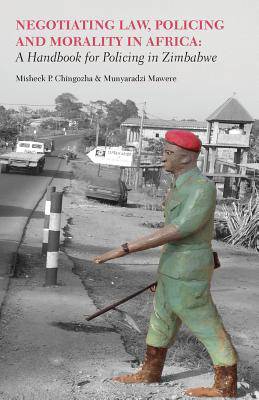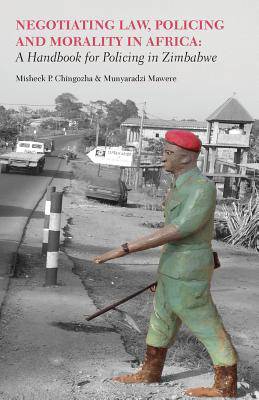
- Afhalen na 1 uur in een winkel met voorraad
- Gratis thuislevering in België vanaf € 30
- Ruim aanbod met 7 miljoen producten
- Afhalen na 1 uur in een winkel met voorraad
- Gratis thuislevering in België vanaf € 30
- Ruim aanbod met 7 miljoen producten
Zoeken
Negotiating Law, Policing and Morality in African. A Handbook for Policing in Zimbabwe
Misheck P Chingozha, Munyaradzi Mawere
Paperback | Engels
€ 57,95
+ 115 punten
Omschrijving
The relationship between police and the public in formerly colonised countries of Africa has never been smooth. It is plagued with clichés of suspicion, mistrust, and brutality which are all a result of the legacy of draconian policing in colonial Africa. This colonial hangover has chiefly been an upshot of sluggish switching from the mantra of colonial policing to community progressive policing advocated in democratic societies. This book, the result of five years of ethnographic and library research on the interaction and relationships between police and members of the public in Zimbabwe, is a clarion call for a generative progressive working together between the police and the public for a peaceful and orderly society. While it traces the historical trends and nature of policing in Africa and in particular Zimbabwe, the book demonstrates how law, morality and policing enrich one another. The book offers critical insights in the interpretation of contemporary policing in Zimbabwe with a view to inform and draw lessons for both police and the public. It should be of interest not only to legal anthropologists but also political scientists, members of the public, police instructors, police officers, and students and educators in academic disciplines such as criminal justice, criminology, law, sociology, African studies, and leadership and conflict management.
Specificaties
Betrokkenen
- Auteur(s):
- Uitgeverij:
Inhoud
- Aantal bladzijden:
- 158
- Taal:
- Engels
Eigenschappen
- Productcode (EAN):
- 9789956762057
- Verschijningsdatum:
- 4/09/2015
- Uitvoering:
- Paperback
- Formaat:
- Trade paperback (VS)
- Afmetingen:
- 140 mm x 216 mm
- Gewicht:
- 190 g

Alleen bij Standaard Boekhandel
+ 115 punten op je klantenkaart van Standaard Boekhandel
Beoordelingen
We publiceren alleen reviews die voldoen aan de voorwaarden voor reviews. Bekijk onze voorwaarden voor reviews.








